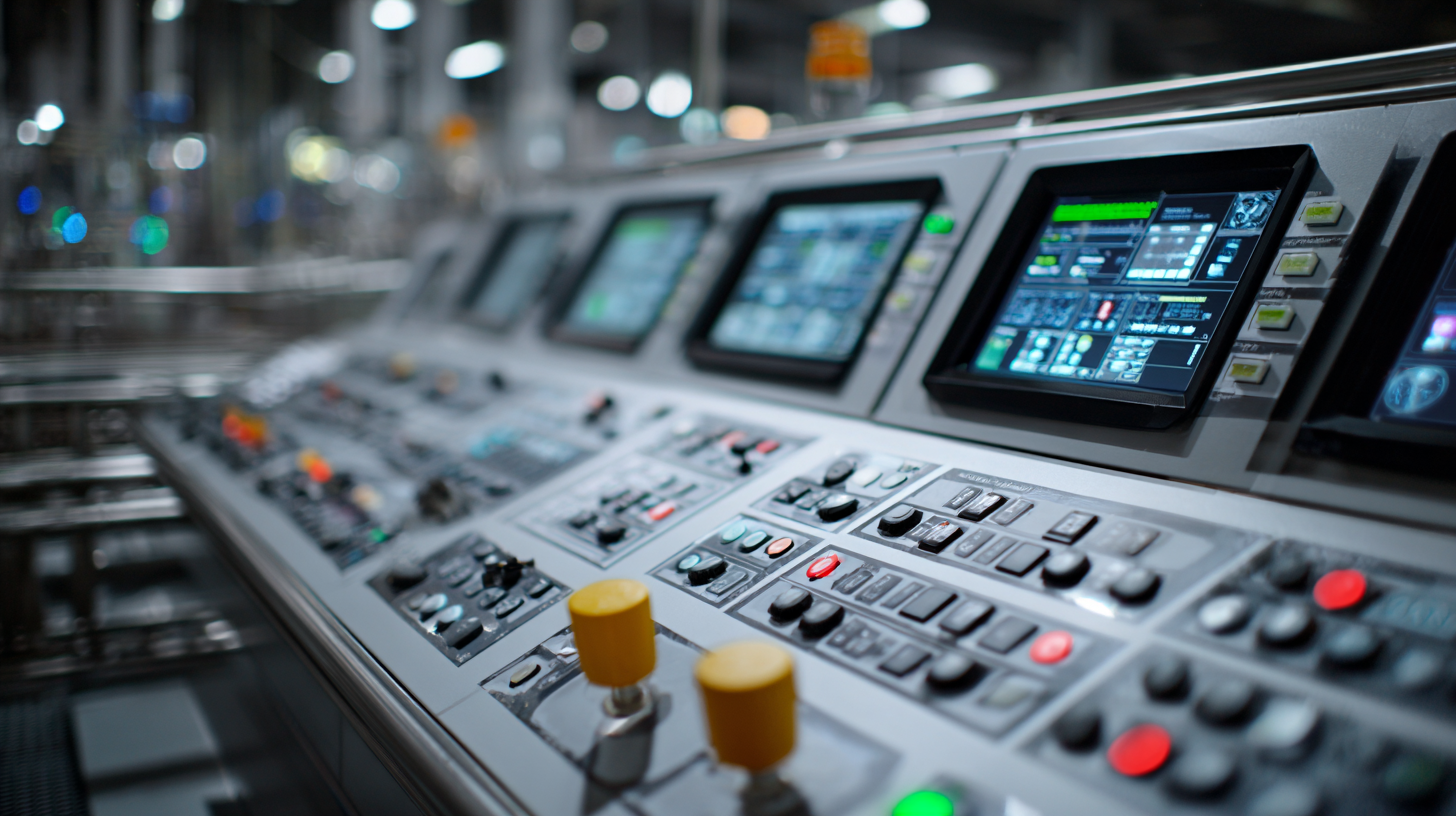In the rapidly evolving landscape of modern industries, innovative automation and control solutions are redefining operational efficiencies and driving productivity. According to a report by McKinsey, the global market for automation technologies is projected to reach $200 billion by 2025, reflecting an annual growth rate of approximately 12%. Additionally, the rise of Industry 4.0, characterized by the integration of smart technologies, is spurring companies to embrace automation in areas such as manufacturing, logistics, and supply chain management. These advanced solutions not only enhance accuracy and speed but also facilitate real-time data analysis, ultimately leading to smarter decision-making processes. As organizations increasingly pivot towards digital transformation, the demand for sophisticated automation and control solutions has never been more critical, making it imperative for industries to adapt and innovate to maintain a competitive edge.

The landscape of modern industries is witnessing a dramatic transformation driven by the latest trends in automation. Companies are increasingly adopting advanced technologies such as AI-powered robotics, IoT integration, and machine learning algorithms to enhance efficiency and productivity. These innovations are streamlining workflows, minimizing human error, and saving time, allowing businesses to respond swiftly to market demands and customer needs.
In sectors ranging from manufacturing to healthcare, automation is revolutionizing traditional processes. For instance, smart factories utilize connected devices that communicate seamlessly, enabling real-time monitoring and decision-making. In healthcare, automation is facilitating faster diagnostics and patient management systems. As these trends continue to evolve, they promise not only to boost operational efficiency but also to foster a culture of innovation, ultimately redefining how industries function in the contemporary landscape.
| Sector | Innovation Type | Efficiency Improvement (%) | Automation Tools Used | Implementation Year |
|---|---|---|---|---|
| Manufacturing | Robotics | 30% | Collaborative Robots (Cobots) | 2022 |
| Healthcare | Telemedicine Solutions | 25% | Remote Patient Monitoring | 2021 |
| Logistics | Warehouse Automation | 40% | Automated Guided Vehicles (AGVs) | 2023 |
| Agriculture | Precision Farming | 35% | Drones and IoT Sensors | 2022 |
| Retail | Smart Checkout Systems | 20% | Self-service kiosks | 2023 |
Innovative automation technologies are revolutionizing modern industries, particularly in manufacturing, where integrated solutions are leading to greater efficiency and productivity. According to a report by the International Federation of Robotics, the global market for robotics in manufacturing is projected to reach $173 billion by 2025, highlighting how automation is becoming an essential component for competitive advantage. Technologies such as robotic process automation (RPA) and AI-driven analytics are enabling firms to optimize their operations, reduce errors, and enhance production speeds.
In addition to robotics, the rise of the Industrial Internet of Things (IIoT) is further driving transformation across various sectors. A report from McKinsey estimates that the potential economic impact of IoT in the manufacturing sector alone could be as much as $3.7 trillion by 2025. With connected devices and predictive maintenance solutions, companies can not only monitor their systems in real-time but also anticipate failures before they occur, reducing downtime and maintenance costs. These advancements illustrate the profound ways in which innovative automation and control technologies are reshaping industry landscapes.
The rise of smart control systems has marked a pivotal shift in how modern industries operate, emphasizing enhanced workforce collaboration. By integrating advanced automation technologies, companies can streamline processes and improve communication between teams. These systems enable real-time data sharing and monitoring, allowing employees to collaborate more effectively, regardless of their physical locations. As a result, teams can respond to challenges swiftly and maintain productivity under various conditions.
Moreover, the implementation of innovative automation solutions fosters a culture of inclusivity and teamwork. When employees can rely on intelligent systems to manage routine tasks, they can focus on strategic initiatives and problem-solving. This shift not only empowers individuals by enhancing their roles within the workplace but also promotes a synergistic environment where diverse skill sets can flourish. Ultimately, smart control systems are not just tools for efficiency; they represent a transformative approach that prioritizes human collaboration and innovation in the industrial landscape.

The rise of automation has opened new doors for small businesses, allowing them to enhance productivity, reduce operational costs, and maintain competitive advantages. Implementing automation does not have to be an expensive endeavor; with strategic planning and resource allocation, even small firms can reap the rewards. By leveraging cost-effective tools and technologies, businesses can streamline processes and allocate human resources more efficiently.
**Tips:** Start by identifying repetitive tasks that can be automated, such as data entry or inventory management. Utilizing software solutions like cloud-based applications can make automation accessible without significant upfront investment. Additionally, consider adopting a phased approach to automation, where you gradually integrate tools into your operations, allowing you to measure effectiveness before committing to larger systems.
Another effective strategy is to invest in employee training. Equipping your staff with the skills they need to leverage new technologies can foster a culture of innovation and adaptability. Encouraging team members to suggest areas for automation can also uncover valuable insights and drive engagement, as they witness the positive effects of streamlined workflows in their daily tasks.
This chart illustrates the percentage of small businesses adopting various cost-effective automation strategies in 2023. As businesses strive for efficiency and cost reduction, understanding these trends is essential.
As industries brace for the next decade, the impact of automation and control solutions will be profound. By integrating smart technologies into their processes, businesses can enhance efficiency, reduce costs, and improve product quality. The rapid development of Artificial Intelligence and machine learning is paving the way for more intuitive systems that can predict failures, optimize operations, and adapt to changing demands in real-time.

Tips: To prepare for this transformation, companies should invest in training their workforce to work alongside automated systems. Emphasizing a culture of continuous learning will help employees adapt and collaborate effectively with new technologies.
Moreover, automation isn't limited to manufacturing; it’s reshaping sectors like healthcare, logistics, and agriculture. For instance, automated drones in agriculture are revolutionizing crop monitoring, while AI-driven diagnostics are enhancing patient care. As industries evolve, the focus should be on scalability and interoperability of automation solutions to ensure seamless integration across all functions.
Tips: Businesses should conduct regular assessments of their automation strategy and remain agile to incorporate innovations that emerge. Keeping abreast of industry trends is essential for staying competitive in a rapidly changing environment.
